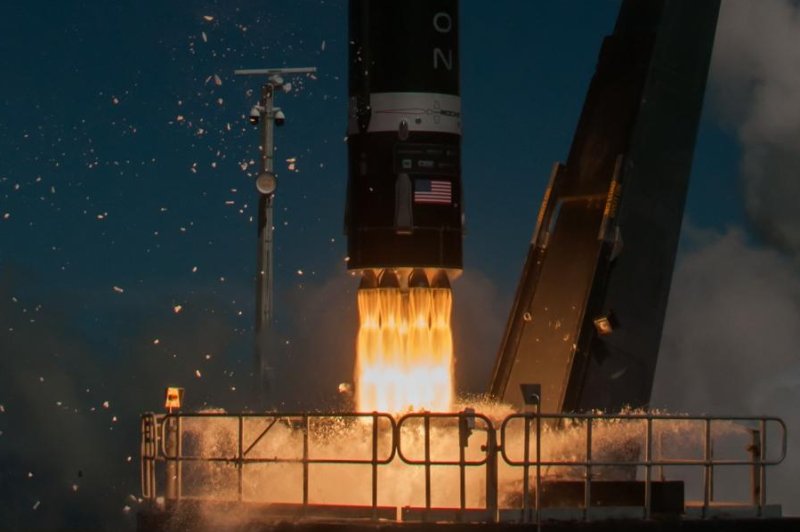1 of 2 | A previous Electron rocket from Rocket Lab launches in New Zealand. Photo courtesy of Andrew Burns and Simon Moffat/Rocket Lab
Dec. 6 (UPI) -- A satellite that spits out artificial shooting stars for light shows in the sky flew into space Friday from New Zealand. The launch came at 9:18 p.m. local time, or 3:18 a.m. EST.
The satellite, made by Japan-based Astro Live Experiences or ALE Co. Ltd, was packed on board an Electron rocket made by new space company Rocket Lab.
It was the 10th launch for Huntington Beach, Calif.-based Rocket Lab and its eighth commercial launch, prompting the mission name of "Running out of Fingers."
It was also the first time that Rocket Lab attempted to test navigation telemetry on its first-stage booster.
The company had decided not to recover the booster, but to use the data in an effort to make the Electron rocket reusable in the future. Rocket Lab intends to catch its boosters, mid-air, using a helicopter with a grappling hook that would snag a parachute line.
Rocket Lab, founded by New Zealand engineer Peter Beck, launches from its own private launch pad on the Mahia Peninsula of New Zealand's North Island.
ALE hopes to have its shooting star satellite, ALE-2, ready by the opening ceremony of the 2020 Tokyo Olympics in June.
"With this launch, we are a step closer to realizing the man-made shooting star," said ALE's founder and CEO, Lena Okajima. "Please look forward to the world's first demonstration we are aiming in 2020."
Also on board the Electron rocket were six nano-satellites built by Glasgow-based Alba Orbital.
Alba Orbital provides mission management for other customers. The small satellites represent five different countries and a range of technology demonstrations, including a payload built by university students in Hungary to measure human-made electromagnetic pollution and a test of new thermal-isolation material for use in space.















